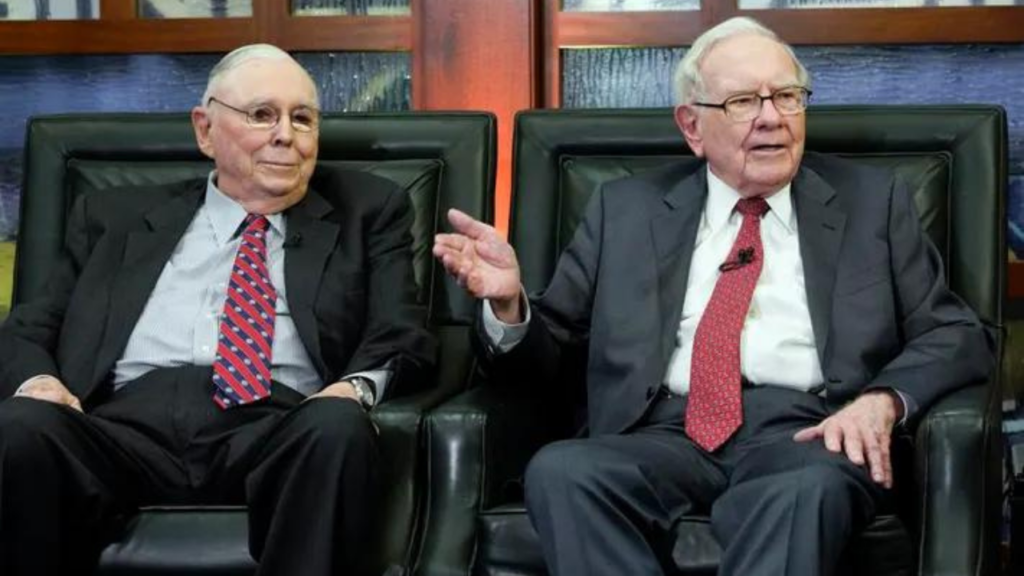In the realm of finance, the passing of Charlie Munger marks the end of an era, leaving a void that may never be truly filled. Renowned as the dry-witted sidekick and chief lieutenant to the legendary Warren Buffett, Munger played a role in reshaping the financial landscape that transcends mere wealth accumulation, leaving an indelible mark on the investment world.
Charlie Munger’s remarkable journey commenced in the vibrant city of Los Angeles, where he initially thrived as a lawyer before serendipitously crossing paths with Warren Buffett in 1959. What transpired thereafter was not just a collaboration but the formation of an extraordinary partnership that would significantly impact the world of finance. Buffett, recognizing Munger’s intellectual acuity, playfully steered him away from the legal realm, urging him to explore the more lucrative path of investing.

In just two decades, Charlie Munger transformed from a successful lawyer into Buffett’s right-hand man at Berkshire Hathaway, accumulating a net worth that mirrored his influence—hovering around an impressive $2.7 billion. However, their success wasn’t merely a result of accumulating wealth; it was deeply rooted in a disciplined approach to what is now known as “value investing.”
The crux of Charlie Munger and Buffett’s strategy lay in the identification of undervalued stocks and the unwavering commitment to holding onto these investments through market fluctuations. This patient and steadfast approach set them apart in an industry that often favored quick gains over enduring investments. Munger’s legal acumen and business knowledge seamlessly complemented Buffett’s financial prowess, forming an unparalleled team that navigated the complex world of finance with unparalleled finesse.
In just two decades, Charlie Munger transformed from a successful lawyer into Buffett’s right-hand man at Berkshire Hathaway, accumulating a net worth that mirrored his influence—hovering around an impressive $2.7 billion. However, their success wasn’t merely a result of accumulating wealth; it was deeply rooted in a disciplined approach to what is now known as “value investing.”
The crux of Charlie Munger and Buffett’s strategy lay in the identification of undervalued stocks and the unwavering commitment to holding onto these investments through market fluctuations. This patient and steadfast approach set them apart in an industry that often favored quick gains over enduring investments. Munger’s legal acumen and business knowledge seamlessly complemented Buffett’s financial prowess, forming an unparalleled team that navigated the complex world of finance with unparalleled finesse.

Charlie Munger famous Quotes:
“If you skillfully follow the multidisciplinary path, you will never wish to come back. It would be like cutting off your hands.”
“Spend each day trying to be a little wiser than you were when you woke up. Discharge your duties faithfully and well. Systematically you get ahead, but not necessarily in fast spurts. Nevertheless, you build discipline by preparing for fast spurts. Slug it out one inch at a time, day by day. At the end of the day – if you live long enough – most people get what they deserve.”
“It is remarkable how much long-term advantage people like us have gotten by trying to be consistently not stupid, instead of trying to be very intelligent.”
“Just because you like it does not mean that the world will necessarily give it to you.”
“I try to get rid of people who always confidently answer questions about which they don’t have any real knowledge.”
“I always say I want to know where I would die so I can never go there.”
“The iron rule of nature is: You get what you reward for. If you want ants to come, you put sugar on the floor.“
“We’re just not interested in taking a substantial chance of taking a lot of very decent people back to “Go” so we can have one more zero on our net worth.”
“I think Warren and I know the edge of our competency better than other people do.”
“I paid no attention to the territorial boundaries of academic disciplines and I just grabbed all the big ideas that I could.”
“Take a simple idea, and take it seriously.”